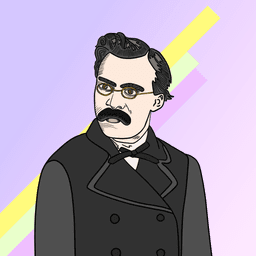German Tongue Twisters
Let's try saying some difficult German tongue twisters, also known as Zungenbrecher.

As a German learner, you're constantly seeking ways to improve your language skills and German pronunciation. One entertaining and challenging way to enhance your speaking abilities is by practicing tongue twisters.
Tongue twisters are phrases or sentences that are difficult to articulate rapidly and correctly due to their intricate combination of sounds. They are a playful way to test your linguistic dexterity and have fun with the German language.
The German word for tongue twister is der Zungenbrecher.
The Benefits of Tongue Twisters
Tongue twisters are not just tongue twisters. They serve a purpose beyond entertaining your friends and family with your linguistic acrobatics. Here are a few benefits of practicing tongue twisters:
-
Pronunciation Practice: Tongue twisters help you improve your pronunciation by targeting specific sounds and combinations. They challenge you to enunciate each syllable clearly and swiftly, allowing you to develop better control over your vocal articulation.
-
Speech Fluency: By repeatedly practicing tongue twisters, you enhance your speech fluency. The rapid succession of sounds and syllables trains your tongue, lips, and vocal cords to work together smoothly, ultimately improving your overall speaking rhythm.
-
Accent Reduction: If you're a non-native German speaker, tongue twisters can be particularly helpful in reducing your accent. They assist you in perfecting the unique sounds and phonetics of the German language, ensuring that your pronunciation aligns more closely with that of native speakers.
Now, let's dive into some popular German tongue twisters and explore the specific sounds and letters they target.
Tongue Twister 1: Ein Stachelschwein
The first tongue twister we're going to look at is challenging due to the repeated "sch" and "st" sounds.
For many German learners, it's not very easy to correctly articulate the sharp "s" and the tricky combination of consonants.
Try saying it out loud:
With this tongue twister, you'll be exercising your tongue, teeth, and vocal cords as you tackle the "st" and "sch" sounds. Focus on maintaining clarity and speed while pronouncing the words.
Tongue Twister 2: Bierbrauer Bauer
The difficulty in the next tongue twister lies in the repetition of the "b" and "r" sounds.
The rapid succession of these consonants can be quite tricky, especially when combined with the rolling "r" sound.
By practicing this tongue twister, you'll enhance your ability to pronounce "b" and "r" sounds consecutively and smoothly. Concentrate on maintaining a consistent rhythm and enunciating each syllable clearly.
Tongue Twister 3: Machen Sie mich nicht lächerlich
Our last tongue twister poses a challenge due to the combination of "ch" sounds in "machen," "mich," and "lächerlich." The "ch" sound can be difficult for non-native speakers to master.
By repeating this tongue twister, you'll exercise your ability to produce the "ch" sound accurately. Pay attention to the back-of-the-throat "ch" sound in "machen" and the softer "ich" sound in "lächerlich."
Easy German Tongue Twisters
1. Fischers Fritz
"Fischers Fritz" is is a true tongue twister classic (if there is such a thing). It's a familiar phrase known by just about everyone in Germany.
Try to say it out loud:

Now, was that difficult?
While it may not make you burst into laughter like some other tongue twisters, it's a serious yet enjoyable challenge for learners.
2. Brautkleid bleibt Brautkleid
This next one is just as difficult and involves bridal gowns & red cabbages:

It translates as "Bridal gown stays bridal gown and red cabbage stays red cabbage". One of the few tongue twisters that'll always remain true.
3. Der Cottbusser Postkutscher
For this next one you have to know that Cottbus is a city in Brandenburg and that a Postkutscher is a stage driver:

A tongue twister with a dash of history. Beautiful!
4. Hundert hungrige Handwerker
I find this next one a rather easy tongue twister, but let's see what you think:

What's nice is that it's very easy to understand if you're a beginner. The only word you might not know is Heißhunger - which means craving (literally translates as "hot hunger").
5. Wir Wiener Waschweiber

6. Zehn zahme Ziegen

Hard German Tongue Twisters
6. Die Katzen kratzen im Katzenkasten

7. Zwetschgenbäume

8. Im dichten Fichtendickicht

9. Schnecken schmecken Schnecken nicht

10. Der dicke Dachdecker

Most Difficult German Tongue Twisters
11. Tschechische Streichholzschächtelchen

12. Max macht Wachsmasken

Some more tongue twisters
- Zwanzig Zwerge zeigen Handstand, zehn im Wandschrank, zehn am Sandstrand.
- Zwischen zwei Zwetschgenbaumzweigen sitzen zwei zwitschernde Schwalben.
- Als Anna abends aß, aß Anna abends Ananas.
- Es lagen zwei zischende Schlangen zwischen zwei spitzen Steinen und zischten dazwischen.
- Mischwasserfischer heißen Mischwasserfischer, weil sie im Mischwasser Mischwasserfische fischen.
- Der Flugplatzspatz nahm auf dem Flugplatz platz. Auf dem Flugplatz nahm der Flugplatzspatz platz.
- Chinesisches Schüsselchen, chinesisches Schüsselchen, chinesisches Schüsselchen.



